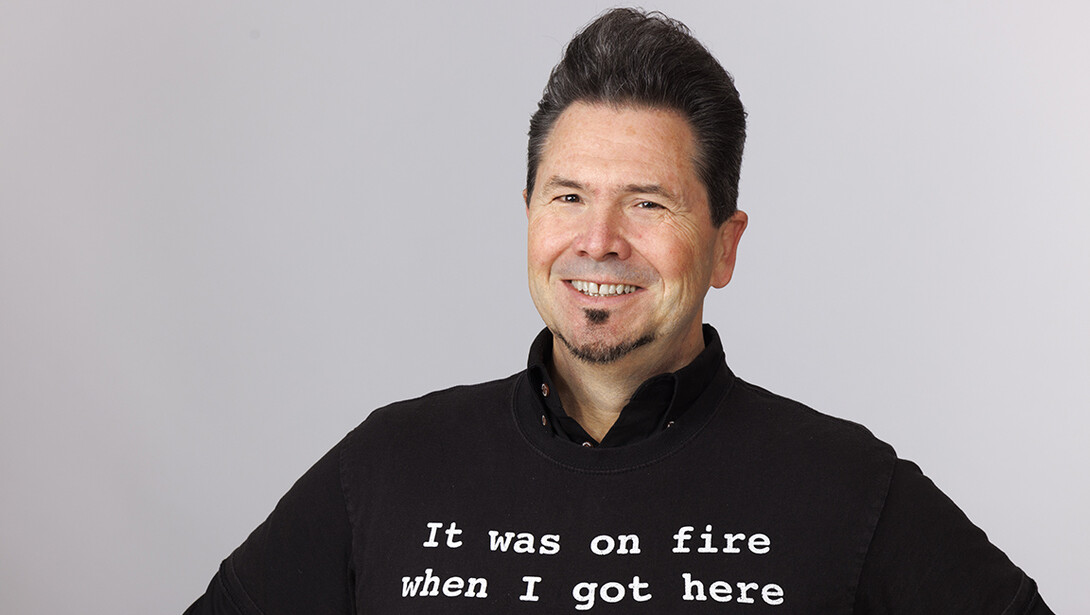
Dan Novy, assistant professor of emerging media arts in the Johnny Carson School of Theatre and Film, is serving as a communications officer in the analog astronaut mission with the Armenian Space Forum in Armash, Armenia, at the Mars Analog Research Station.
“I will be in charge of communications between the habitat and our local mission control, and then that MCC will be in contact with the main MCC in Vienna, Austria, run by the Austrian Space Forum. I was originally tapped to be at main mission control in Vienna, and I did accept," Novy said prior to his departure. "However, caveat, if I get an astronaut assignment, I’m definitely taking it. They said that’s completely understandable. I got a few interviews at a couple of other habitats and then was eventually invited to go to Armenia.”
The station is one of the flagship independent habitats for the World’s Biggest Analog initiative. Analogs help scientists prepare for space by simulating missions on Earth. The WBA is an international collaboration of researchers, educators and entrepreneurs embarking on a mission to unite the world’s analogs through a single mission coordinated around the globe for two weeks in October. The mission is integrating more than 40 elite analog astronauts at 16 analog research stations located across the world.
Novy’s mission will last through Oct. 27 and will simulate planetary surface operations under isolated, confined and extreme conditions, reflecting the challenges of future Martian expeditions. He is one of six analog astronauts on his crew from around the world.
Exploration is an important theme in Novy’s research.
“As a student at the MIT Media Lab, I was involved in the Space Exploration Initiative, which began in 2017. In fact, I helped plan and execute the very first Beyond the Cradle space exploration conference at the MIT Media Lab, and ever since then, I was just involved, as a student, doing all sorts of things with space exploration while I was also doing ocean exploration, so exploration is sort of a theme within my research," Novy said. "Action, adventure, exploration—it’s what I love. It’s what drives me.”
Novy is currently part of Ocean Discovery League’s $1.2 million NOAA grant for development of its next-generation deep ocean sensor system. The project was recently featured in “National Geographic” magazine. Novy said he’s doing the work not just for himself, but for his students as well.
“I really want my students to see that space or exploration, in general, is something that they can do, especially as emerging media artists,” Novy said. “A lot of people might say, what is an artist doing working in the space industry? But if you look very closely at what space analog is, it’s a simulation. It’s very much a form of immersive theatre, and there are some elements of role-playing, and that’s something I study as a theatre and media professional. The idea is how can we apply things like escape room mechanics and virtual production methodologies and technologies to increase the fidelity of the simulation and thereby get better results.”
The immediate goal is to make things as real as possible for the analog astronauts, with the ultimate being to establish a ground-based analog research station in Nebraska. While no space analog habitat exists in the state, there are decommissioned missile silos that could be reformed, Novy said.
“This is a new thing for me, and I’m super excited,” Novy said. “I would just like my students to dream bigger and realize that things like space and ocean exploration are things that are within their reach, and that they can do. It’s just a matter of going out there and finding it.”







